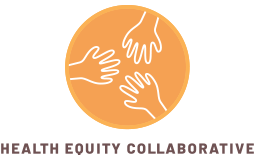30 Sep Access to Care: A Hispanic Heritage Month Priority
Hispanic Heritage Month is a time to celebrate the rich cultural contributions of Hispanic and Latino individuals. However, for those of us working to create positive changes in the Latino community, it is also an opportunity to promote health equity priorities for Latinos, including the need for greater access to care.
While Latinos have made significant strides, disparities in health outcomes persist. Latinos still face higher rates of chronic conditions such as diabetes, heart disease, and obesity. Latino women and children experience disproportionate rates of adverse health outcomes, including infant mortality and preterm birth. Lack of access to proper mental health treatments is also driving disparities, often due to stigma and lack of culturally competent care.
Policies for improving Latino health vary in scope. Some address systemic issues at a national level while others are focused on promoting community-level efforts and resources. Improving access to care should be a top priority in all policy initiatives.
At the federal level, policymakers should be working to increase the availability of affordable health insurance options, such as Medicare, Medicaid, and the Affordable Care Act (ACA) marketplace coverage. Latinos still have the highest uninsured rate of any racial or ethnic group in the US. In 2022, 16.8% of Latinos had no health insurance coverage, compared to 5.3% of non-Hispanic whites. Overcoming this gap will require conducting robust outreach and enrollment assistance to restore trust among Latinos and improving application processes to avoid deterring eligible people from signing up for coverage. Federal policymakers and advocates must also continue to work to strengthen protections against discrimination in healthcare and invest in our public health infrastructure.
At the state and local level, we should be working to expand access to culturally competent healthcare providers and facilities. This includes ensuring that healthcare facilities and providers have the necessary resources to communicate effectively with Latino patients in their preferred language. According to an Associated Press-NORC Center for Public Affairs Research study, nearly 6 in 10 Hispanic adults have had difficulty communicating with a healthcare provider due to language or cultural barriers. Collaborating with Latino community organizations and leaders to identify and address such needs will be key to ensuring such barriers are overcome.
What must be made clear is that achieving health equity for the Latino community will require a collective effort from individuals, healthcare providers, policymakers, and community organizations. Only by working together can we create a more just and equitable healthcare system that serves the needs of all.


